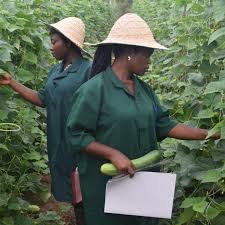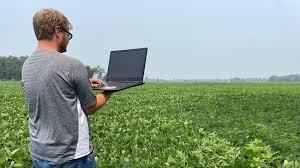Developing and improving farm records not only enhances decision-making and operational efficiency but also ensures compliance with regulatory standards and facilitates better planning for the future. By systematically recording and analyzing data, farmers can identify trends, manage risks, and optimize their farm’s productivity and profitability.
In the ever-evolving landscape of agriculture, maintaining accurate and comprehensive farm records is essential for your success in farming. Farm records serve as the backbone of a well-managed farm operation, providing critical insights into various aspects of farming activities such as production, finances, livestock management, crop performance, and resource allocation.
In this article, you will learn about the different methods of developing and improving farm records as I take you through record keeping and record analysis, selecting a record keeping system and comparison of the hand and computer system of record keeping.
Read Also: Basic Guide for Proper Treatment of Fish and Fish Diseases
Guide to Developing Farm Records

Farm record keeping refers to keeping, filing, categorizing and maintaining farm financial and production information, while Record analysis on the other hand refers to evaluating farm records.
The evaluation process allows a farm manager to make informed decisions based on actual (or projected) farm performance, therefore, record analysis cannot take place without first keeping records obviously so they both work together for a successful record keeping and analysis.
Different Methods of Developing and Keeping Farm Records
Record analysis is the analysis of performance of a farm business which is typically done in two different ways namely: analyzing the enterprise singly or individually and whole farm business analysis.
The enterprise analysis deals with determination of the profitability and effectiveness of individual farm enterprises, while the hand or manual system and the computer or automated system are the two different methods of developing and keeping farm records.
1. The Hand or Manual System

A large number of hand systems are available as one of the simplest systems involves the recording by hand of all financial transactions in a journal format.
Purchases and sales activities are listed by hand as they occur. The enterprises show the date, the item involved (quantity, size etc.) and cash involved in sale or purchase. These are done using preformatted record books and ledger sheets.
The manual record keeping is aptly suitable for small businesses (Farms) whose transactions and activities are still very small and manageable but are still required by regulatory authorities to show proof of their business dealing for tax purposes and economic planning
Advantages of Manual Record Keeping
Some of the advantages of manual record keeping systems include the following:
- Low cost of materials needed for record keeping and
- Ease of use: The manual system is straight forward and devoid of complications, especially if you don’t have lots of different expense and income items.
Disadvantages of Manual Record Keeping
Some of the disadvantages of manual record-keeping systems include:
- They are often “single entry” systems, meaning you enter each transaction only once. As such, there is no automatic check and balance system like that used in computer programs (like Quicken or in more formal double entry bookkeeping systems.
- You must manually tally up expenses or income by category or by month — which can be time consuming and could lead to errors.
2. Computerized Record Keeping System

This entails the use of different software packages in farm record keeping. In 1994 Pena et al evaluated six computerized farm record keeping programs with each program having some unique features.
Selecting a computerized record keeping program should be done on the basis of the features needed. For instance, some program will allow for enterprise accounting, while some programs will calculate payroll reports for employees.
Few financial record keeping programs allow for production records to be kept simultaneously with financial records. For example in many programs, sales of grain or livestock can be reported in Naira or USD only, with no accounting for kilograms.
A computerized record-keeping system will not necessarily save time during data or information inputs as often assumed when comparing to the manual record keeping, rather it’s real advantage is in record analysis as once the information is posted in the computer software, reports and analysis can be created, changed and printed almost immediately.
The major advantage is that the computerized systems quickly and accurately sort and report a great deal of information, and they can also provide monthly or annual summaries for identifying strengths and weaknesses of any farm operation.
Advantages of Using a Software Program
Some of the advantages of using a software program for record keeping include the following:
- Eliminate math errors.
- Instantly see your income and expenses by category
- Get profit and loss statements and other financial summaries quickly, and
- Interface with compatible tax software programs so you don’t need to re-input data come tax time.
Disadvantages of Using a Software Program
Some of the disadvantages of software programs for farm business record keeping include:
- They are slightly more expensive than manual record keeping supplies. A simple program like Quicken runs about $50, while programs (like Quickbooks) that are geared toward larger businesses can cost $150 or more.
- You must have a computer and be comfortable using it on a regular basis.
Read Also: Introduction to Fisheries Ecology
Different Ways of Improving Farm Records

Accurate records are essential for evaluating your farms performance as accurate analysis required accurate data. Too often farmers rather rely on publications which describe an average farm instead of personal records that describe their personal farms.
However, to make the best financial decisions concerning your farm, use data collected from your farm directly, and only then can you be certain that the records which you are evaluating are your farm records.
It is possible to make the job of farm record keeping easier by using forms and accounting systems designed specially for the farm, also a good source for record keeping books is your local extension agent or agricultural lender, while software packages for farm record keeping can be purchased for your personal computer.
Accuracy however is just as important in management record keeping as in tax and financial record keeping because if the management information isn’t accurate, it may do more harm than if you didn’t have it at all.
When dealing with physical quantities, check sheets are recommended as a tool for testing the equality of the sources and uses of quantities and thereby testing the accuracy of quantity information.
The sources or amount of account for should equal or at least closely approximate the uses or amount accounted for. Additionally, quantity sources should typically include beginning inventory quality, quantity purchased, quantity produced and quantity transfer in from other production enterprises or production centers.
While uses typically include: quantity sold, quantity fed if feed or grain, quantity spoiled or death loss in livestock, quantity transferred out to other enterprises or production centers, and ending inventory quantity.
You should also bear in mind that inventory change is a critical element if quantities are to coincide with accrual adjusted financial measures.
Now completeness is another matter entirely, a farmer could wear himself out keeping track of every type of information that might remotely be useful for management analysis purposes.
However, the appropriate criteria for how much and what farm management information to record are:
1. Does the benefit of recording and using the information sufficiently exceed the cost to make it worthwhile?
2. If the information is collated, will it be used to influence farm decision making?
As you try to apply these criteria, it may be helpful to think about what information is likely to change how you operate the farm. Information that will change how you operate and lead to improved yields would seem to produce a net benefit.
Unfortunately, we generally don’t have the luxury of knowing that the information will pay off until we try them out but it is a good idea to have a plan in mind about how the farm management information will be used before investing ample amounts of time and money collecting those information.
Farm management records are only useful when they are used, and farmers have to continually make management decisions, as we have so far identified.
These farm management decisions determine the outcome of a farm operation in relation to investment undertaken, financing of the operation, protection, or custodial and consumption behaviour of the farm household. Thus, to make good decisions, farmers must have relevant information.
Now here are the key points which I want you to take from this article from the information given to you so far:
1. Keeping records are essential to the efficient management of a farm business.
2. Accurate farm records and resulting analyses help farmers make better financial and production decisions.
3. Traditional hand record-keeping systems continue to work well for many farmers especially if finance to switch over to the computerized farm record keeping system is limited.
4. Computerized farm record keeping and analysis program have been accepted and used by a number of farmers also especially in commercial farms.
5. Developing and using a farm record keeping system will allow the farm manager to make more informed decisions affecting the overall performance and profitability of the farm.
Do you have any questions, suggestions, or contributions? If so, please feel free to use the comment box below to share your thoughts. We also encourage you to kindly share this information with others who might benefit from it. Since we can’t reach everyone at once, we truly appreciate your help in spreading the word. Thank you so much for your support and for sharing!
Read Also: Household Hazardous Waste (HHW)

